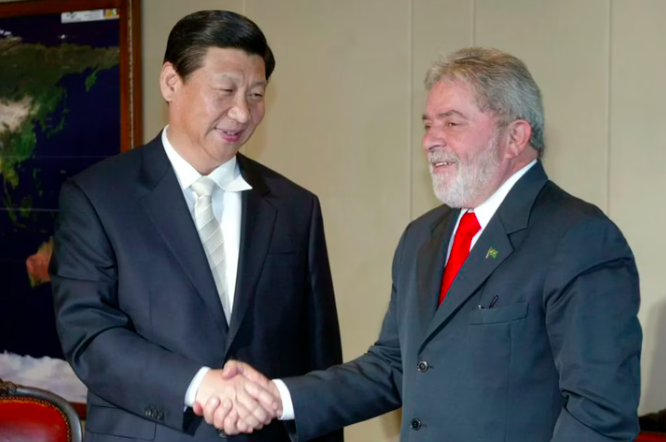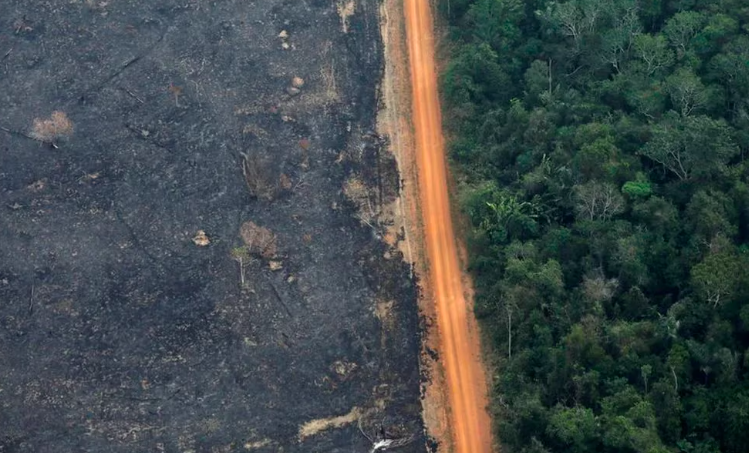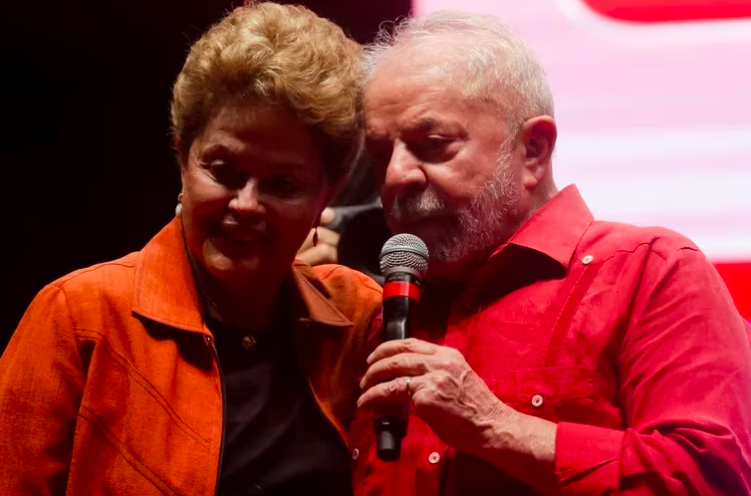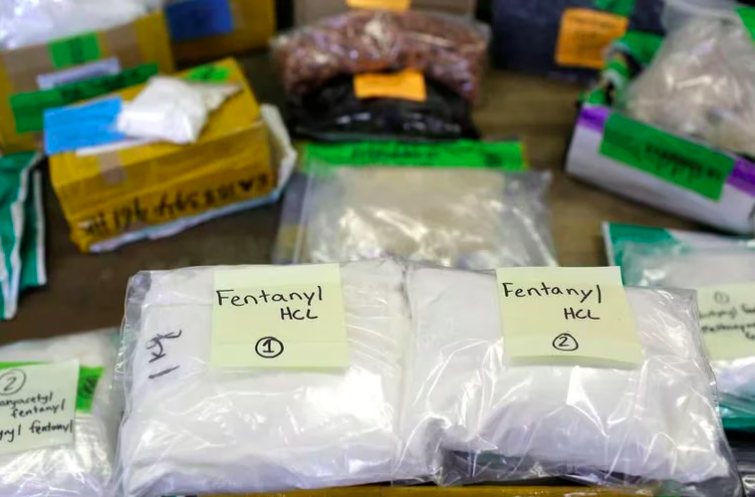By Maria Zuppello*
After a providential “mild pneumonia” had prevented him from leaving for China on March 26, Brazilian President Luiz Inácio Lula da Silva finally flies to Beijing tomorrow.
The pneumonia was providential because it allowed him to negotiate some serious issues in Congress, first of all, fundamental provisional measures for the new government, such as the “Bolsa Família” program.
In the last few days, Lula tried and managed to convince the “super bloc” of 142 congress members of the five center parties that support his government, but always for something in exchange.

But Lula’s “mild pneumonia” was providential because it avoided controversies in his trip to China, where he was going to be accompanied by the largest delegation in the history of Brazil, some 240 people, among politicians and agribusiness exponents.
It’s the fourth international mission of his third term in office after Argentina, Uruguay, and the United States.
This new mission in April is small.
It will last four days instead of a week. Lula will be accompanied by the President of the Senate, Rodrigo Pacheco, some 30 parliamentarians, and the Minister of Economy, Fernando Haddad.
Among the possible agenda items at the meeting with his counterpart Xi Jinping will be, according to the Brazilian press, Lula’s project to create a peace club outside NATO and the United Nations to mediate a peaceful solution to the conflict between Ukraine and Russia.
There is also much anticipation about the possibility of Lula signing Brazil’s accession to the “Belt and Road Initiative”.
This is the much-discussed “New Silk Road“, the great Chinese strategic project that, with the promise of investments for the construction of new infrastructures in the signatory countries, allows China an unprecedented geopolitical and economic expansion in this vision of the new multipolar world order that, together with Russia, Beijing is promoting.
This also explains the initiative accepted without any critical evaluation by Brazil to remove the dollar in commercial transactions with China.
The two countries will abandon the US dollar as an intermediary as of next July to trade in their currencies by exchanging yuan for real and vice versa.
Since 2009, China has become the country’s main economic partner, which in 2022 recorded a trade surplus with Beijing of about US$30 billion, almost half of the Latin American country’s entire trade balance.
Among the main goods exported by Brazil are soybeans, meat, and extractive products.
At the end of March, Brazil’s Central Bank announced that the yuan had overtaken the euro in Brazil’s international foreign exchange reserves, becoming the second currency after the dollar.
John Cassara, former CIA officer, special agent of the US Treasury Department, and author of the recent book “China – Specific Illicit Activities: CCP Inc., Transnational Crime and Money Laundering”, explained to Infobae that “the use of the yuan instead of the dollar will give China even greater control.”
“Many countries worldwide that have succumbed to China’s ‘development’ overtures have since regretted it.”
“Their deals are shrouded in secrecy, and transnational crime, corruption, and money laundering by China are common phenomena that go hand in hand.”
“Some countries are even losing their sovereignty to China.”
THE RISKS OF THE AMAZON DEAL
Lula’s government, however, does not seem worried about possible interference from a one-party country, which, let’s remember, is a dictatorship.
So much so that he will sign in Beijing an agreement for CBERS-6, a joint satellite with China to monitor deforestation in the Amazon.
The idea of “reducing deforestation to zero” with China’s help is astonishing.

Beijing, the world’s biggest greenhouse gas polluter, wants to create a carbon credit trade with Brazil that will likely be signed on this trip.
But one has to look in detail at the plan that Lula wants to adhere to understand how Brazil risks economic suicide.
The president’s idea is to entrust Beijing with the project of recovering degraded areas of the Amazon, or abandoned or unproductive pastures, some 40 million hectares, to transform them into areas for growing food crops such as wheat and soybeans.
Brazil has asked the Chinese for a US$100 billion loan for this transformation.
In return, Brazilian farmers will have to pay their debt directly to Xi Jinping’s government in commodities such as soybeans, corn, and wheat, which are necessary for China’s survival, especially in the not unlikely scenario of a conflict with Taiwan and a possible international embargo.
COFCO, the Chinese state-owned agri-food company, is interested in the deal, which, however, risks strangling Brazilian rural producers and “seizing” their land in favor of Beijing.
In fact, with their strong credit, the Chinese will be able to put pressure on them and decide the price of raw materials, with a huge impact on Brazil if one thinks that China buys about 68% of Brazilian exports.
Before accepting such an agreement, Lula should remember what happened in neighboring Venezuela, where in 2008, then President Hugo Chávez signed with Beijing the creation of a Chinese-Venezuelan Joint Fund (FCCV).
With a loan of some US$4 billion, Chávez spent left and right, even building the first “Venezuelan” satellite to raise the debt to US$60 billion.
He gave oil as a payment guarantee, Venezuela’s main resource – as land is for Brazil – and, thanks to this agreement, he led the Venezuelan economy to collapse.
“TAOBAO VILLAGES” AND TECHNOLOGICAL COOPERATION AGREEMENTS
As if that were not enough, Brazil has already signed an agreement with Ali Express – the Brazilian version of Ali Baba, owned by Chinese billionaire Jack Ma – to create “Taobao villages.”
In China, bringing rural production online has helped the country overcome hunger.
However, the project proposed to Brazil is to enable small local Brazilian farmers to put their products for sale on Ali Baba’s international platform and to train them technologically in e-commerce.
Nothing wrong with that, were it not for the fact that professional training and cultural education outside China are part of Xi Jinping’s absolutist strategy, which has become more aggressive in recent months.
A “sharp power” that threatens to penetrate Brazil in an irreversible and non-symmetrical way, even on the technological front.
Lula will also sign a technological cooperation agreement on semiconductors, 5G, 6G, and even artificial intelligence this week.
These are sensitive issues that could put Brazilian security at risk.
Suffice it to recall that the Chinese military guidelines of the National Defense White Paper that Xi Jinping wanted in 2019 repeatedly speak of “smart warfare”, i.e., wars with artificial intelligence.
Allowing China to enter with its control technology in Brazil means giving it the keys to open any door.

Upon his arrival, Lula will also participate in Shanghai in the inauguration of his protégée Dilma Rousseff as president of the BRICS Bank.
This association brings together Brazil and China, Russia, and South Africa.
Iran, Argentina, Nicaragua, Nigeria, Algeria, Egypt, Afghanistan, Senegal, Indonesia, Saudi Arabia, Afghanistan, Kazakhstan, and Tunisia have already been interested in joining.
During Rousseff’s second term as president of Brazil (2014-2016), which ended in 2016 with impeachment, the country experienced the worst economic recession in its history.
CHINESE FENTANYL
Finally, in this new season of China-Brazil relations, great attention must be paid, according to experts, to the recent penetration of fentanyl, produced, according to intelligence sources, in Brazil by the First Capital Command (PCC) with the support of the Mexican Sinaloa cartel, which is moving production out of Mexico due to pressure from the US.
The precursors are mostly Chinese-made.
Brazil could become its gateway to the Americas thanks to intensifying political and commercial relations.

“Many consider that China is using the export of fentanyl and its precursors as a form of asymmetric warfare,” Cassara tells Infobae.
“Brazilian authorities should understand that China is a ‘command state,’ meaning an authoritarian country based on command and that it can control the production, distribution, dissemination, and supply chain of fentanyl if it wants to.”
“I encourage Brazil to learn from the current fentanyl tragedy in the United States.”
Upon his return from China, some important commitments await Lula.
On the internal front, the appointment of the two new directors – of Monetary Policy and Control – of the Central Bank, and on the external front, the official visit of the Russian Foreign Minister, Sergei Lavrov, scheduled for April 17, which is already causing a stir because of a mysterious diplomatic cargo revealed by the Brazilian press, currently stationed in Argentina, weighing 5 tonnes.
According to the news site Jovem Pan, Lavrov’s visit will anticipate that of President Vladimir Putin, scheduled for June.
Putin is subject to an arrest warrant issued by the International Criminal Court for being “responsible for the war crime of illegal deportation of children from the occupied areas of Ukraine to Russia”.
*Maria Zuppello is an Italian journalist based in São Paulo, Brazil.
With information from Infobae

